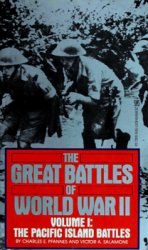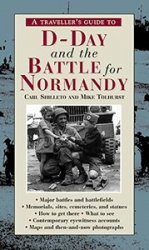Lieutenant Fraser
Pontiac’s actions in late 1764 and throughout the winter are uncertain. By April 8, 1765, however, Pontiac had arrived with other Ottawa warriors at Fort de Chartres in Illinois, still hoping to enlist others in his opposition to the British.
During the same month, a party led by Lieutenant Alexander Fraser arrived at the fort with the goal of asserting British domination. Fraser warned Louis St. Ange de Bellerive, who had succeeded de Neyon as commandant, against helping the Indians fight the British. Although less than pleased by the threat, St. Ange reminded Fraser that he could not control what Pontiac or any other Indian did and then invited his guests to dinner.
After the meal, Pontiac arrived with a number of supporters and took Fraser captive. Pontiac relented from this action at St. Ange’s urging and allowed Fraser to remain in the fort, although the small contingent of troops (approximately 50) could offer Fraser only limited protection.
Fraser met with Pontiac the following day and assured him that the Shawnees, Delawares, and Iroquois had already made peace. Pontiac, based on conversations with Shawnees over the winter, did not believe that they had come to any significant agreement with the British and also argued that the British-French treaty of 1763 did not apply to the Illinois region. Nonetheless, Pontiac began to become concerned that the Great Lakes region might be lost and expressed a more conciliatory tone toward Fraser. He defended his brief capture of Fraser the night before as an attempt to ensure the officer’s safety and expressed a willingness to speak with George Croghan, who was reportedly on his way toward Fort de Chartres.
Croghan never arrived, and Fraser remained in the area for about six weeks developing great respect for Pontiac’s leadership, intelligence, integrity, and humanity. Finally, having decided to return to Ohio and demonstrating a fondness for the British officer, Pontiac urged Fraser to leave for his own protection, fearing what might happen in his absence. Fraser took the advice and departed on May 29, descending the Mississippi to New Orleans, with the British consequently failing once again to secure Illinois.
Croghan had left Fort Pitt in May 1765 expecting to join Fraser in Illinois. On June 8, however, he was taken captive by Kickapoos and Mascoutens. Croghan was finally released in July, perhaps in part because of a message from Pontiac expressing a willingness to hold discussions with him. Pontiac’s growing acceptance of the need to discuss peace was at least partly a response
To the general movement of native peoples in the Midwest toward peace agreements, most recently the Miamis.
Negotiations
Pontiac, accompanied by Iroquois, Delaware, and Shawnee representatives, met Croghan near the present-day location of Allerton in east-central Illinois. The parties then returned to Ouiatenon, where they formally discussed a cessation of hostilities. Pontiac insisted that he had never sold any land to the British and that he would not yield to British rule. Nonetheless, he was ready to cease fighting.
Croghan respected Pontiac’s intelligence and the respect that other Indians had for him, but had little sympathy for the Indian point of view. Indeed, he noted in a letter back to Fort Pitt that he hoped to undermine Pontiac’s standing with his own Ottawas. Croghan’s and Pontiac’s parties left Ouiatenon for Detroit on July 25 after Croghan had informed General Gage that it was now safe to send troops to Fort de Chartres.
An Agreement
On August 17, Pontiac and Croghan reached Fort Detroit—the same fort that just two years earlier Pontiac and his allies had tried so hard to capture. Pontiac, along with Chippewas, Hurons, and Potawatomies, met with Croghan on August 27, at which time Croghan stressed the benefits of peace. The meeting resumed the next day. Pontiac declared his desire for peace, promised to send a pipe to Sir William Johnson, and asked that his people be extended credit to purchase powder and lead for hunting. A week later, on September 4, Pontiac restated his long-held position that his people had never sold land to the French or the British, so they should receive payment for land that the British were using for forts and trading posts. On this point, the British had no intention of yielding, although some individuals, both French and British, perhaps to avoid conflicts with Pontiac, sought and received deeds from him for parcels of land.
The agreement ended Pontiac’s military efforts against the British. Croghan, reflecting on his interaction with Pontiac, concluded that the Ottawa leader enjoyed more respect from the collective Indian nations than any other Indian received even from his own people.




 World History
World History









